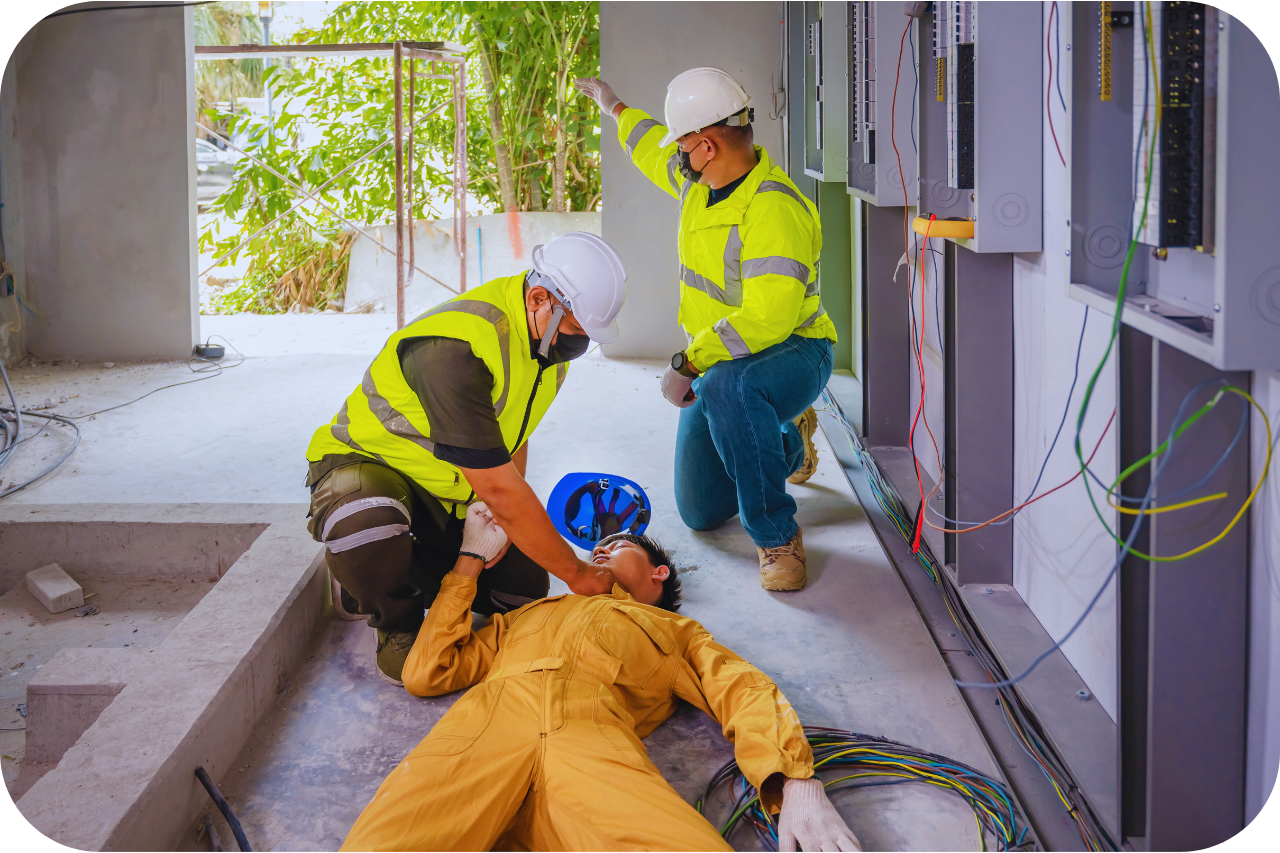Introduction
In today's busy office, making certain the safety and security and health of your workforce is vital. One element that often gets forgotten is hands-on handling, which refers to the procedure of training, carrying, pushing, or drawing things. In this article, we will discover effective hand-operated handling strategies that can assist maintain your workforce risk-free and healthy and balanced. We will certainly likewise talk about the significance of emergency treatment training, consisting of CPR training and mental health emergency treatment, and how these aspects add to a more secure job environment.
Manual Handling Strategies: Maintaining Your Labor Force Safe and Healthy
Manual handling techniques are necessary for stopping injuries in the work environment. Improper lifting techniques can result in musculoskeletal problems (MSDs), which account for a substantial variety of work environment injuries. To properly minimize threats connected with hands-on handling, organizations need to implement training programs that emphasize correct techniques.
Understanding Handbook Managing Risks
Before diving into particular techniques, it's vital to identify the risks involved in hands-on handling tasks. According to research study, poor training methods can lead to:
- Back pain Muscle strains Joint injuries Chronic problems impacting mobility
Recognizing these threats permits companies and staff members alike to focus on safety.
The Value of Training
Training plays an important role in decreasing manual handling-related injuries. It's not nearly recognizing exactly how to lift correctly; it's additionally about understanding body technicians and comfort designs. A comprehensive manual handling training training course must cover:
- Proper lifting techniques Risk assessment skills Use of equipment like trolleys or forklifts
Additionally, incorporating first aid courses into office training guarantees Childcare first aid course that every person recognizes just how to respond effectively in situation of an injury.
Basic Raising Techniques
Here are some fundamental strategies that everyone should grasp:
1. Assess the Load
- Before training anything, always evaluate its weight and shape. If it seems as well hefty or awkwardly formed, seek support or usage mechanical aids.
2. Positioning
- Stand near to the object. Place your feet shoulder-width apart for balance. Bend your knees while keeping your back straight.
3. Grip
- Ensure a firm hold on the object. Use both hands when possible.
4. Lifting
- Lift with your legs rather than your back. Keep the object near to your body as you stand up.
5. Carrying
- Maintain a secure pose while walking. Avoid turning your body; rather, transform your whole body by relocating your feet.
6. Setting Down
- Lower the things by flexing at the knees again. Ensure that you position it down delicately without going down it.
Using Equipment for Hands-on Handling
Investing in devices made for hands-on handling can significantly reduce injury risk. Right here's a checklist of typically used tools:
|Tools Type|Purpose|| ----------------|--------------------------------------|| Trolleys|For moving hefty products|| Lifts|For raising people or hefty items|| Pallet Jacks|For moving palletized lots|
Incorporating Emergency treatment Training
While decreasing dangers with proper hands-on handling is vital, being planned for emergencies is similarly important. This is where emergency treatment training comes into play.
Types of First Aid Courses Available
General Office First Aid

- Covers basic first aid skills needed in various job environments.
CPR Training
- Teaches lifesaving cardiopulmonary resuscitation techniques essential during cardiac emergencies.
Corporate First Aid Training
- Tailored programs particularly created for company settings focusing on typical work environment injuries.
Mental Health and wellness First Aid
- Provides abilities to aid associates having problem with psychological health and wellness issues-- a vital element commonly forgot in conventional first aid courses.
Childcare Emergency treatment Course
- Focuses on reacting to emergencies involving kids-- optimal for those working in academic settings or childcare centers.
Online First Aid Course
- Offers adaptability for employees to discover at their own rate while still covering all essential content.
Creating a Society of Safety
To preserve an atmosphere for safety, growing a culture where staff members really feel encouraged to speak up concerning risks is essential.
1. Encourage Open up Communication
Encourage employees to report unsafe conditions without concern of vengeance; this promotes an open dialogue regarding potential risks connected with hands-on handling tasks.
2. Regular Training Sessions
Hold routine workshops on manual handling methods and refreshers on emergency treatment courses-- keeping skills sharp makes sure preparedness during emergencies.
3. Promote Mental Well-being
Since psychological wellness plays an essential function in general wellness, employers need to advertise mental health and wellness recognition together with physical security measures.
FAQs
Q1: What are the indications that I need hand-operated taking care of training?
A1: If employees frequently raise hefty things or report discomfort after raising jobs, it's time for comprehensive manual handling training sessions.
Q2: Just how usually must we perform emergency treatment training?
A2: Preferably, first aid training need to occur annually; nonetheless, even more constant sessions may be valuable based on work environment threats or changes in staff.
Q3: Can online programs be as efficient as classroom-based training?
A3: Yes! Online programs have actually come to be increasingly interactive and give important resources-- just guarantee they satisfy certification requirements!


Q4: What type of devices must our office invest in?
A4: Buy carts, lifts, pallet jacks, and ergonomic furniture-- these devices assist minimize injury from incorrect manual handling practices.
Conclusion
In verdict, mastering proper hand-operated handling techniques is vital for promoting a secure and healthy workforce atmosphere. By focusing on complete training-- including vital subjects like first aid courses-- you equip workers with expertise vital for both prevention and feedback during emergencies like crashes associated with messed up loads.
Remember: Safety and security isn't simply a plan; it's a society constructed via regular effort from every individual within an organization!
By providing efficient guidebooks on these practices while stressing continual learning through qualifications such as CPR or Mental Health First Aid Courses-- business can develop offices where safety thrives!